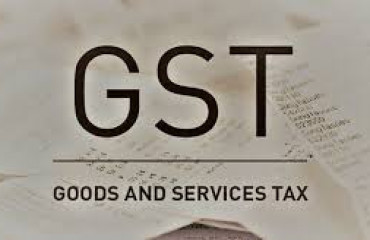
The recommendation of India’s GST Council to impose a 28 % tax on the full face value of bets placed on online games has put the fate of the online skill-based gaming industry at serious risk. This is in direct contradiction with steps taken by the Union ministry of electronics and information technology (MeitY) to support the industry by introducing a regulatory system for permissible online gaming. The MeitY consultations that led up to that framework, led by minister of state for IT Rajeev Chandrasekhar, were hailed widely in the industry as being comprehensive, inclusive and evidence-based.
The recommendation of India's GST Council to impose a 28 % tax on the full face value of bets placed on online games has put the fate of the online skill-based gaming industry at serious risk. This is in direct contradiction with steps taken by the Union ministry of electronics and information technology (MeitY) to support the industry by introducing a regulatory system for permissible online gaming. The MeitY consultations that led up to that framework, led by minister of state for IT Rajeev Chandrasekhar, were hailed widely in the industry as being comprehensive, inclusive and evidence-based.
To avoid undoing the exemplary work done by MeitY over the last two years, the Centre and state governments have an opportunity to re-examine the GST Council's recommendations, especially because they are not in line with the country's overall policy on the gaming sector as publicly stated—including by a 2022 report by a task-force under the information and broadcasting ministry on the promotion of animation, visual effects, gaming and comics (AVGC) as a sector.
A simple reading of the announcement made by the GST Council throws up several questions and concerns. In the first place, it can be argued that under the Constitution, the GST Council cannot advise on amendments to the GST Act. In any event, as per a recent Supreme Court decision, the recommendations of the GST Council are not binding on the central government and state legislatures.
The other major issue is that, according to the government, the proposed amendments are clarificatory in nature and the GST law always intended to tax the entire bet value at 28%. The Centre's revenue secretary has been quoted as saying that any amendment will be applicable to ongoing cases as well. This is likely to create havoc. Gaming companies will not have monies available to pay tax (if made applicable retrospectively), as they would have already distributed funds to winners. The present government while introducing the Finance Act of 2016 had assured everyone that it would not retrospectively create fresh tax liabilities and that it was committed to providing a stable and predictable taxation regime.
Further, the proposed GST amendment is not clarificatory in nature; Indian courts have already interpreted the present provisions as holding that only 18% tax is payable on platform fees charged. Where a retrospective amendment imposes an altogether new tax liability, courts have struck down such moves under Articles 14 and 19(1)(g) of the Constitution. If the proposals of the GST Council are applied on a retrospective basis, legal challenges are likely to arise. The retrospective aspect should be nipped in the bud.
During the press conference after the GST Council decision, finance minister Nirmala Sitharaman noted that certain games may lack transparency and it may not be possible for the GST department to determine taxation according to the characteristics of each game. However, unlike at casinos, there is transparency in relation to each transaction undertaken on the web platforms of online gaming intermediaries (OGIs).
The finance minister also noted that while the MeitY has introduced regulations for online real money games, the proposal of the GST Council is only from a tax perspective.
It is true that tax policy should be kept simple. While it may not be possible for the GST department to analyse the specific nature of each online game, levying tax on a uniform basis on all games (irrespective of their nature) may not be a sound tax policy decision either. Thanks to new regulatory norms, it is possible to identify online games as permissible or otherwise, and have a favourable tax treatment regime for such games: i.e., just levy GST at 28 % on the service fee charged by regulated OGIs. This itself will result in an increase of the GST burden by about 40%.
MeitY's regulations are designed to ensure that the online games offered by OGIs are verified as permissible online games, which inter-alia include permissible online real money games. These are online games played with real money that are verified by a self-regulatory body (SRB) established under the rules notified by MeitY. One of the criteria for verification by an SRB is that the OGI and its online game should not violate any Indian laws for the time being in force.
It is also important to note that social concerns on the possibility of excessive gaming are likely to be addressed by MeitY regulations. Also, as duly regulated entities, OGIs bear specific obligations in relation to player identification and protection, redressal of player complaints, etc.
The GST department can leverage the rules introduced by MeitY and provide a more benign GST regime for online games registered with SRBs. This may serve as a middle-ground between the industry's request for a lighter tax burden and the GST department's concerns in this sector. Further, considering that OGIs use digital transactions, the flow of funds is visible to authorities and so determining the amount charged by them as service fees should not be a difficult exercise.
The minister of state for IT recently stated that he might request the GST Council to reconsider its decision. This has given a ray of hope to online gaming industry participants and other stakeholders. They expect governments at the central and state levels to take India's overall policy on gaming and MeitY's regulations into account to re-examine the tax proposal.
